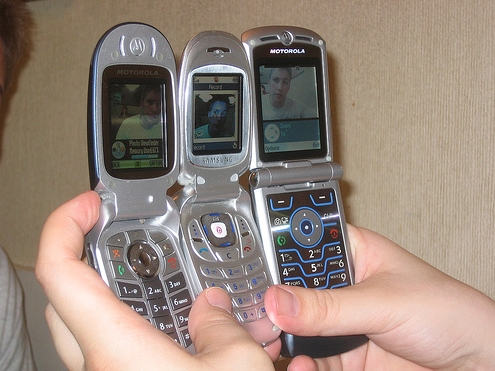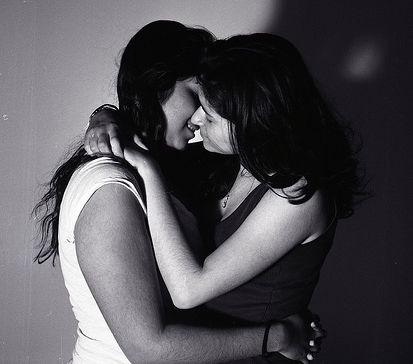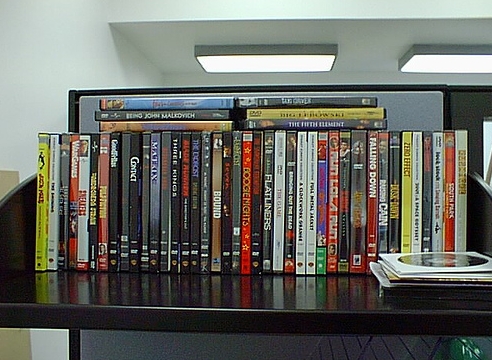Having ‘the talk’ with kids is never easy; even for the most relaxed and easy going parent. What you say will have a great impact on how your kids feel about sex and how they view it later in life. You might not think they’re listening, but what you say will be heard and it will make a difference – as long as you go about it the right way.

When you first have your child, the last thing on your mind should be when and how to have ‘the talk’, but as your child approaches their teenage years, it’s important to start giving it some thought. Talking about sex will be uncomfortable for you and for your children, but it’s extremely important that you educate them and arm them with the knowledge they need to make smart choices. Don’t rely on their peers, their teachers or other avenues to do the teaching for you. Take control. This guide offers ten simple things to keep in mine that will help your ‘talk’ be most successful.

10: Wait for them to come to you or wait until you feel they are ready.
Generally speaking, when your child starts to go through puberty, you should be preparing to have the talk. Take the changes in their bodies as a cue. With that said, don’t rush things with your kids. If you don’t honestly feel in your heart that your kids are ready for the talk then don’t have it. You don’t want to push them before they’re at the right maturity level. You need to be honest with yourself though. If they want to dress more provocatively or show more interest than usual in their appearance, it may be time to have the talk. Remember, there is a lot of misinformation out there, especially among kids, and when it comes to sex, misinformation can be dangerous.

09: Choose the time and place for the conversation carefully.
Think of your kids before you settle in for the sex conversation. Don’t choose a time when your child has somewhere to be. As a parent, you should know when they have plans with friends, after school activities or other engagements. Choose a time that works for both of you and allows plenty of time for discussion. A weekend evening is ideal. The last thing your kids want to do after a long school day is sit down for another lesson at home.
Choose a room in the house that is comfortable. Their bedroom is fine but not all kids are open to sitting down for a discussing with their parent in their bedroom. That’s okay. Let them make that call. If you choose the living room or another common area of the house, eliminate distractions like the television or a computer with internet. Turn the computer off. Turn the television off. All focus should be on you and your child. Later on, we’ll talk more about movies and television shows, but to begin the conversation, create a focus, but still relaxed environment.

08: Make it a one on one conversation.
It’s also important to remember that having a one on one conversation does not necessarily mean just keeping other people physically out of the room. Turn off the cell phones – your and your child’s. Don’t take phone calls on your land line unless it’s an emergency. Although we’ve already talked about turning the computer off, I’ll repeat that rule here. Instant messengers are just as much of an interruption as a cell phone.

07: Be prepared for embarrassment.
Talking to your kids about sex isn’t going to be easy. It’s embarrassing. Your kids are probably going to giggle, say ‘ew’ and be generally embarrassed much of the time. It’s okay. Be prepared for it and be patient with your kids. Be patient with yourself as well. Let your kids know that you’re embarrassed too. It will make them feel a lot more comfortable and it will help you connect with your kids as their equal instead of just as their parent.

06: Keep the atmosphere light, relaxed and casual.
Getting uptight is about the worst thing you can do when talking to your kids about sex. You won’t be helping your kids and you won’t be helping yourself. If your kids start getting upset, which is a very likely scenario, watch your tone. Don’t be confrontational and if they start raising your voice, don’t respond in kind. Let them walk away if they want to walk away then try again when things calm down. Generally speaking, your kids are going to be open and receptive as long as you don’t come across as judgmental or preachy. Be understanding and be patient. You’ll get a lot further with a positive attitude.

05: Be honest about sexuality.
It’s time to be real and it’s time to be honest. There is a real possibility that your child (just like with any child) could be gay. They could be bisexual. They could be transgender. They could be straight. You need to be open with your child about what all of that means. Don’t push them in one way or the other. You might want your child to be straight, but that doesn’t necessarily mean they will be. Not talking to your kids about all forms of sexuality is dangerous. You risk making your child feel like they’re not accepted or loved if they’re different.
Above all else, let your child know that slapping a label on their sexuality isn’t really that important when it comes right down to it. They have plenty of time to figure it out. It’s okay to be curious and it’s okay not to know. Just be sure they know that curiosity and promiscuity are not the same thing. Remember, telling your kids the truth about sexuality does not mean you’re encouraging them to be straight, gay or bisexual. It’s merely allowing them to feel open and able to be honest with you and that’s definitely something you want.

04: Talk about their options and the risks involved in having sex.
One of the most important things you need to get across when you talk to your kids about sex is the risks associated with sex and the importance of safer sex. Talk to them about their options. Abstinence is a valid option and make sure they understand that. It is perfectly fine to wait for a committed relationship and let them know it isn’t okay for someone to pressure them to do it before they’re ready.
We all want our kids to remain virgins until they’re married, but not telling your kids about safer sex (condoms and other birth control methods) is frankly irresponsible. Many young girls who get pregnant simply weren’t aware that ‘pulling out’ was not a reliable means of birth control. Think back to all of those myths you heard as a teenager:
- You can’t get pregnant your first time.
- You can’t get pregnant standing up.
- If the man pulls out before orgasm you can’t get pregnant.
- You can’t get pregnant in a hot tub or pool.
- You can’t get pregnant if you urinate after sex.
All of the above have a few things in common; they’re all untrue and they’re all still common myths among teenagers. Set your kids straight. You also need to make sure your kids know there is actually no such thing as completely safe sex. Condoms and birth control allow for safer sex, but accidents can still happen. It’s also important not to focus entirely on pregnancy. Inform your kids about sexually transmitted diseases. Mention some of the symptoms. Let them know some of the diseases have no cure. Finally, let them know that condoms don’t always prevent sexually transmitted diseases. The only way to absolutely prevent pregnancy or the spread of STDs is to abstain from sex entirely.
At the same time, you don’t want your child to be scared of sex. Sex is a wonderful, beautiful and meaningful thing two people can share together, but the bullet point to make here is that choosing to become sexually active means being responsible for anything that happens afterwards. It is a big decision to make and is best made by two people in love. If your kids really understand that, you’ve done your job.

03: Use movies or television shows as a talking point.
Although much of what Hollywood typically produces is purely for entertainment value, there is a lot out there that you can use to help your kids learn about sex. Don’t use a movie to teach your kids, but use movies or television shows as talking points or conversation starters. Some great examples of movies that show teenage sex or teenage sexuality in a realistic light include:
- But I’m a Cheerleader
- Easy A
- Juno
- Riding in Cars with Boys
- Saved
- The Kids Are Alright
Some of the movies are not appropriate for children of all ages. You are the best judge of what you feel your child will be mature enough to handle, so view the movies you’re interested in watching with them in advance. There are many more excellent movies out there you can watch with your kids to start a discussion about sex. In my opinion, Juno is one of the best, most honest portrayals of teenage pregnancy to come out in recent years but it’s also very entertaining. Excellent choice.

02: Listen to your kids and let them ask questions.
Don’t make your children feel like they’re being lectured. ‘The talk’ is called ‘the talk’ because it should go with ways. It should be a discussion. Let them tell you what they know about sex. Let them ask questions about anything they’re not clear about. Don’t judge them. If they tell you a story about ‘a friend’, please don’t automatically assume they’re talking about themselves. Let your kids know that you love and accept them and that they can ask you anything. Asking questions is a great way to satisfy curiosity – a much better approach than cutting off that line of communication and having them go out and experiment.

01: Be honest when talking about your sexuality but don’t over share.
If your kids ask you about your own sexuality or your own sexual history – when you lost your virginity, how you knew when you were ready, if you knew you were ready and things of that nature are all common questions from kids to parents – be honest with them but only answer the question they asked and only answer if they asked. If you start delving into your own sexual past without being asked, you’re likely going to accomplish nothing other than making sure your kids never want to talk to you about sex again.
It’s logical. Would you want to hear all of the dirty details of your conception? Would you want to know how many sexual partners your mother or father had before (or after) each other? Would you want to know the craziest place your parents ever had sex? If you answered yes to any of those questions I applaud your maturity and your solid relationship with your parents but that is not the kind of relationship most parents have with their kids – at least not as teenagers. If your kids want to know, they’ll ask.











